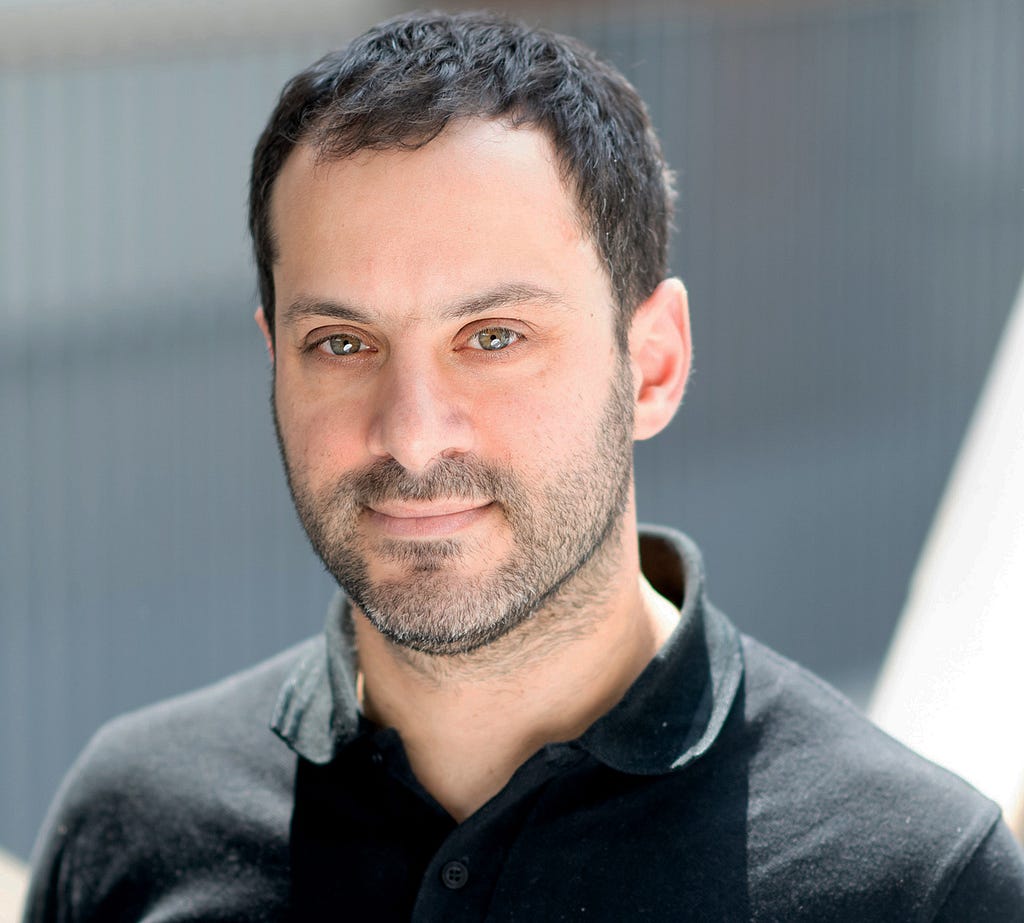
I believe that the stigma is due to a lack of understanding of the basic mechanisms that cause mental health conditions. When you think of the brain as any other organ, such as the kidney, you can begin to think of any brain condition as analogous to a kidney condition. There wouldn’t be stigma attached to someone that is suffering from kidney disease, so why attach stigma to one dealing with a mental health condition? This fundamental need to understand how the brain works and how disruption in these processes may lead to disease is so important for reducing stigma.
As a part of our series about Mental Health Champions helping to promote mental wellness, I had the pleasure to interview Mazen Kheirbek Ph.D.
Mazen Kheirbek, PhD is an Associate Professor in the Department of Psychiatry and Behavioral Sciences at UCSF where he leads a systems neuroscience research group that works to understand the basic underpinnings of emotional behavior. In recent years, his group and collaborators have made several important contributions including discovering brain circuits by which the hippocampus modulates mood and anxiety-related behavior and a role for white matter plasticity in recall of fear memories, to name a few. Dr. Kheirbek has won numerous awards for his work, including The Freedman Prize Honorable Mention from BBRF, the One Mind Rising Star Award, an HFSP Young Investigator Award, a Pew Biomedical Scholar Award, a Klingenstein-Simons Fellowship and a McKnight Foundation Memory and Cognitive Disorders Award.
Thank you so much for doing this with us! Before we dig in, our readers would like to get to know you a bit. Can you tell us a bit about how you grew up?
I grew up in the Chicago area. I would say I had a typical Midwestern childhood, except that my parents were immigrants from Syria. We often traveled to Syria growing up, which gave me the taste for international travel as an adult. One of my favorite parts of my job as an academic is connecting with scientists all over the world.
You are currently leading a social impact organization that is helping to promote mental wellness. Can you tell us a bit about what you or your organization are trying to address?
I am a basic neuroscientist interested in fundamental principles of how the brain controls behavior, with a specific focus on understanding how brain areas and circuits that control adaptive behavior may be altered and impacted in maladaptive behavioral states. For example, in work funded by One Mind, the leading brain health non-profit, we are interested in how communication between two brain regions (the hippocampus and hypothalamus) may become disrupted as a consequence of stress. By understanding the cell types and connections that are impacted by stress, we can begin to develop new targets. This is allowing us to identify neuromodulation strategies to reset these circuits and reduce maladaptive states induced by stress.
Can you tell us the backstory about what inspired you to originally feel passionate about this cause?
I have always had a profound interest in how the brain generates behavior. While my interests have always been academic in nature, I hope my work will shed some light on to how to correct dysfunctional neural circuits, thus benefiting human health. For example, we are just starting to uncover how severe stress impacts the brain, and why some individuals may be susceptible to developing these illnesses after trauma. Basic science is crucial for understanding the circuits that control memory and fear; it is these questions that drive my research and invigorate my passion for understanding the brain. If we can begin opening up the black box of the brain, we can not only identify new targets and therapeutics, but remove the stigma around mental illness.
Many of us have ideas, dreams, and passions, but never manifest them. They don’t get up and just do it. But you did. Was there an “Aha Moment” that made you decide that you were actually going to step up and do it? What was that final trigger?
It was working in labs and making discoveries! I remember my first lab experiences, working on something nobody else has done before, and seeing something for the first time. That is what made me decide this is what I want to do for a living.
Can you share the most interesting story that happened to you since you began leading your company or organization?
I remember when we first made a discovery that led to a major paper that delineated a population of neurons deep in the brain that controlled anxiety (article about this is: https://www.npr.org/sections/health-shots/2018/01/31/582112597/researchers-discover-anxiety-cells-in-the-brain). An MD-PhD student at the time, Jessica Jimenez, and I were recording activity in a part of the brain we thought may be involved in tracking how anxiety-provoking the environment it was in. Here we’re testing mice, and mice are scared of wide-open exposed spaces. Whenever the mice would very carefully enter into the wide open and exposed spaces, we saw a burst of brain activity within a specific population of neurons in mouse’s hippocampus. And it happened every time! We were so excited, we were making a discovery of an anxiety-related signal in the brain in real-time. Of course, after that we had to go do all the proper controls, but the pure excitement of making a discovery is something I will never get bored of. In fact, this work laid the groundwork for our One Mind Rising Star Award, allowing us to expand on this finding and make new discoveries related to mood and anxiety networks in the brain.
None of us can be successful without some help along the way. Did you have mentors or cheerleaders who helped you to succeed? Can you tell us a story about their influence?
Absolutely! Mentors in our field are profoundly important, they help navigate the academic environment, provide feedback on scientific ideas and are role models for success. I have had many important mentors throughout my career. One way that I have benefited from tremendously is being a part of the One Mind Rising Star program — meeting senior scientists and leaders in the field of mental health research at the annual meeting. This has given me the opportunity to develop a broad network of supportive mentors. However, to highlight one mentor that has had a huge influence on it would be my postdoc mentor (René Hen, Columbia University). He taught me not only how to do rigorous science and always question the data, but how to be creative and think outside the box. He taught me to be fearless in my science and always enjoy the discovery process. In addition, he believed in giving his mentees the support to be independent, to follow their own ideas and path. That is something I try to do with my mentees in the lab, providing a diverse group of individuals with the means and support to do science they are passionate about is a recipe for success.
According to Mental Health America’s report, over 44 million Americans have a mental health condition. Yet there’s still a stigma about mental illness. Can you share a few reasons you think this is so?
I believe that the stigma is due to a lack of understanding of the basic mechanisms that cause mental health conditions. When you think of the brain as any other organ, such as the kidney, you can begin to think of any brain condition as analogous to a kidney condition. There wouldn’t be stigma attached to someone that is suffering from kidney disease, so why attach stigma to one dealing with a mental health condition? This fundamental need to understand how the brain works and how disruption in these processes may lead to disease is so important for reducing stigma.
In your experience, what should a) individuals b) society, and c) the government do to better support people suffering from mental illness?
First, as described above, funding for understanding basic functioning of brain circuits is crucial for developing new therapeutics and reducing the stigma. In addition to funding basic research, funding for mental health resources in our communities is crucial. Making mental health a priority, as we would our physical health is so important, stressing the need to get help when it’s needed. We should invest in mental health supports that emphasizes prevention/maintenance models, prevention and early intervention are key to supporting people. As individuals, we need to be open about the difficulty of being human and understand we are all unique and all need to be supported differently. Developing healthy coping strategies that take into account our own diverse background and uniqueness is important. For example, the pandemic has impacted all aspects of our lives, and social isolation has affected all of us deeply. However, we are all different, and how and the degree to which this has had an impact on our lives can differ. We all have been impacted in different ways. Identifying that we are all different and being mindful of this in our day-to-day interactions is so important. I’ve tried to make sure that I can maintain some form of normalcy throughout this by making time to do the things I describe above.
What are your 5 strategies you use to promote your own wellbeing and mental wellness? Can you please give a story or example for each?
I have several strategies I have tried to use to promote my own well-being. 1) I try to practice healthy sleep habits and exercise. The benefits of these for brain health are so well known, but with our insane schedules, it’s so easy to neglect them. 2) I set realistic work goals and remain organized and on top of my schedule. Nothing is more anxiety provoking than a deadline, so I’m careful to set aside realistic time windows to complete tasks. 3) Mindfulness and spending time in nature. I’m lucky to live right next to a wonderful park, and the Bay Area has amazing places to explore. 4) Hanging out with my son. My son is 4 years old and is hilarious and so fun to be around. I volunteer in his preschool, which happens to be in a beautiful canyon. Those few hours away from my phone and work and be present in nature really lifts my mood. 5) social interactions. I love going out with friends — one night out can really have a big effect on my overall mood. I love to travel and see friends and colleagues all over the world. One of the great things about being an academic is the ability to travel and generate these kinds of networks.
If you could tell other people one thing about why they should consider making a positive impact on our environment or society, like you, what would you tell them?
For me, my job is twofold, one is making scientific discoveries that are rewarding not only due to the joy of discovery, but if we can just learn a little more about the brain that can get us just a bit closer to fixing it when things go wrong. Second is the mentoring, I have a very active group of young researchers that all share this passion to understand the brain. Seeing a student grow and develop independence is one of the most rewarding aspects of my job.
How can our readers follow you online?
www.kheirbeklab.org and on Twitter @mazen_kheirbek
This was very meaningful, thank you so much. We wish you only continued success on your great work!
Mental Health Champions: Why & How Mazen Kheirbek Of UCSF Is Helping To Champion Mental Wellness was originally published in Authority Magazine on Medium, where people are continuing the conversation by highlighting and responding to this story.
